Entertainment
/ArcaMax

Jessica Alba 'is not interested in a relationship right now'
Jessica Alba is "focused on herself and her kids" - rather than her love life.
The 44-year-old actress is "enjoying being single again" following her split from husband Cash Warren - but Jessica is "not interested in a relationship right now".
A source told People: "She's been getting a lot of attention since the divorce. She's flattered and ...Read more

Tori Spelling reveals Dean McDermott once called her Donna Martin
Dean McDermott once called out the name of Tori Spelling's Beverly Hills, 90210 character during an intimate moment.
The 52-year-old actress played Donna Martin on the hit TV show between 1990 and 2000, and Tori has revealed that her ex-husband was a fan of her on-screen character.
Asked if she's ever role-played as Donna during an intimate ...Read more
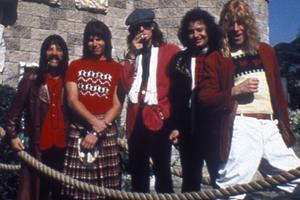
This Is Spinal Tap's David Kaff dies aged 79
David Kaff has died aged 79.
The actor and musician - who was best-known for playing keyboardist Viv Savage in Rob Reiner's This Is Spinal Tap - passed away on Friday (07.11.25).
Mutual of Alameda's Wild Kingdom, his band, said in a Facebook post: "Our brother David Kaffinetti passed away peacefully in his sleep. We are devastated by this ...Read more

Lala Kent knew about Brock Davies' affair
Lala Kent knew about Brock Davies' affair before it became public knowledge.
The 34-year-old reality star has revealed that Scheana Shay made her aware of Brock's infidelity before she wrote about it in her new memoir, My Good Side.
She explained on her Give Them Lala podcast: "I did [know about the affair]. But not for a while.
"So that [...Read more

Billie Lourd predicts her kids will love Smurfs movie
Billie Lourd's kids will "freak out" about her Smurfs role.
The 32-year-old actress stars in the new animated movie alongside the likes of Rihanna, James Corden, Sandra Oh, Jimmy Kimmel, Octavia Spencer, Alex Winter, and Hannah Waddingham, and Billie is convinced that her kids will love the film.
Billie - who has son Kingston, four, and ...Read more

Kelly Clarkson cried after canceling Las Vegas show
Kelly Clarkson cried after cancelling the opening night of her Las Vegas residency.
The 43-year-old pop star was forced to cancel the opening night of her residency at The Colosseum at Caesars Palace after falling ill, and Kelly actually apologized to her fans after taking to the stage this weekend.
She told the crowd: "It took me a minute. I'...Read more

Unreleased Beyoncé music stolen from car during her Atlanta tour stop
ATLANTA — Thieves allegedly broke into an SUV near downtown Atlanta last week and stole several items that belonged to superstar Beyoncé, including unreleased music, footage plans for her tour shows, and past and future set lists, authorities said Monday.
Atlanta police confirmed an arrest warrant was issued for a suspect following the ...Read more

Elmo said what? Sesame Workshop pins 'disgusting' racist, obscene tweets on hacker
It seems Elmo’s world recently included vitriolic racist, antisemitic and foul-mouthed social media posts.
“Sesame Street‘s” perpetually 3½-year-old mascot caught his social media fans off guard over the weekend as he seemingly traded his wholesome tweets on X (formerly Twitter) for hateful posts, including calling for violence against...Read more
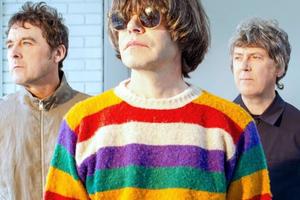
The Charlatans announce We Are Love release date
The Charlatans are set to release their new album on October 31.
The British rock band have confirmed that We Are Love, their 14th studio album, will be released later this year, with the title track being billed as a statement of intent for their new era.
Frontman Tim Burgess has likened the single to an "open top car ride in the credits of ...Read more
'This Is Spinal Tap' star David Kaffinetti dies at 79
SAN JOSE, Calif. — David Kaffinetti, a former member of the fictional/parody rock act Spinal Tap, died on July 11.
The musician, who is known for playing the role of keyboardist Viv Savage in the 1984 cult-classic film “This Is Spinal Tap,” was 79.
News of his passing was confirmed by the longtime Bay Area resident’s more recent band �...Read more

Rihanna: I've always wanted a baby girl
Rihanna has "always wanted" a baby girl.
The 37-year-old star is currently pregnant with her third child, and after previously having two baby boys with A$AP Rocky, Rihanna admits that she'd love to have a little girl one day.
Asked about the sex of her unborn baby, Rihanna told Extra: "You have to wait and see. Oh, my gosh, are you guys going...Read more
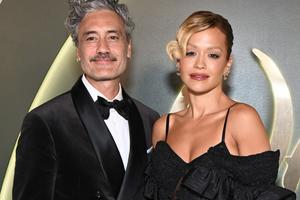
Mutual support is key to a happy marriage, says Rita Ora
Rita Ora thinks mutual support is the key to her marriage to Taika Waititi.
The 34-year-old pop star has been married to the Hollywood director since 2022, and she's now explained why their relationship works so well.
The chart-topping singer told People: "I think just respect and supporting each other through our own separate careers, ...Read more

Sarah Jessica Parker doesn't watch And Just Like That...
Sarah Jessica Parker refuses to watch And Just Like That...
The 60-year-old actress reprised the role of Carrie Bradshaw to star in the Sex and The City sequel series - but Sarah doesn't enjoy watching herself on-screen.
During an appearance on Watch What Happens Live With Andy Cohen, Sarah explained: "I don't not watch it because I'm being ...Read more

Stellan Skarsgard accepted a lower salary for Sentimental Value
Stellan Skarsgard accepted a lower salary for Sentimental Value because he wanted the crew to enjoy good lunches.
The 74-year-old actor served as an executive producer on the Joachim Trier-directed comedy-drama film, but Stellan decided to accept a lower salary for his role for the sake of the crew.
During a round-table interview at the ...Read more

Rihanna thrilled to see Smurfs movie being 'birthed'
Rihanna is thrilled that Smurfs is "finally being birthed".
The 37-year-old star voices the part of Smurfette in the new animated movie, and Rihanna is delighted that her kids can now finally enjoy the movie.
The chart-topping singer - who has RZA, three, and Riot, 23 months, with A$AP Rocky - told Extra: "We get to watch the movie together ...Read more

Olivia Culpo and husband Christian McCaffrey's baby has arrived: 'Love like no other'
Olivia Culpo and Christian McCaffrey are now parents, and the arrival of their baby girl has them both feeling lucky.
Model-actor Culpo revealed Sunday that she and her NFL star husband welcomed their daughter earlier this month. She marked the beginning of her journey into motherhood on Instagram, sharing several pictures from her newborn’s ...Read more
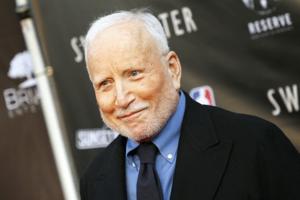
'Jaws' star Richard Dreyfuss cancels SharkCon appearance amid severe illness
“Jaws” star Richard Dreyfuss dropped out of an appearance at a fan convention over the weekend after coming down with viral bronchitis that appeared to require hospitalization.
The 77-year-old actor was expected at SharkCon, an event hosted by National Geographic in Tampa, that took place July 12 and 13.
In a video posted on the SharkCon ...Read more
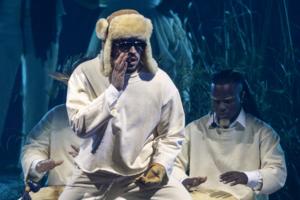
Review: Bad Bunny urges Puerto Ricans to own their rhythm in emotional hometown show
A young woman emerged from the dark into a green and bushy clearing. Under the faux moonlight, she wandered the stage, speaking to herself. “Where’s my camera? I can’t believe I lost it. All my memories were there,” she said with a pang of panic in her voice.
Moments later, a young man surfaced from the same spot. His eyes scanned the ...Read more
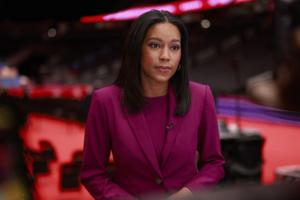
Rachel Scott and James Longman will co-anchor a daily ABC News streaming program for Disney +
The news is coming to Disney +.
Starting July 21, the streaming service will offer its first original program from ABC News with senior political correspondent Rachel Scott and international correspondent James Longman as co-anchors.
The short-form program, called “What You Need To Know,” will be taped each morning and made available to ...Read more

Rosie O'Donnell: I'm everything 'King Joffrey' Donald Trump fears
SAN JOSE, Calif. — Touching on their increasingly incendiary public feud, comedian Rosie O’Donnell explained over the weekend why Donald Trump, the president of the United States, is giving any thought to her, a past-her-prime entertainer who no longer lives in the United States.
“I am proud to be opposed to every single thing he says and...Read more
Inside Entertainment News
Popular Stories
- Jessica Alba 'is not interested in a relationship right now'
- Review: Blackpink pumps up the SoFi crowd with first US show in 2 years
- Sarah Jessica Parker confirms she dated Nicolas Cage before meeting husband Matthew Broderick
- This Is Spinal Tap's David Kaff dies aged 79
- Lala Kent knew about Brock Davies' affair











